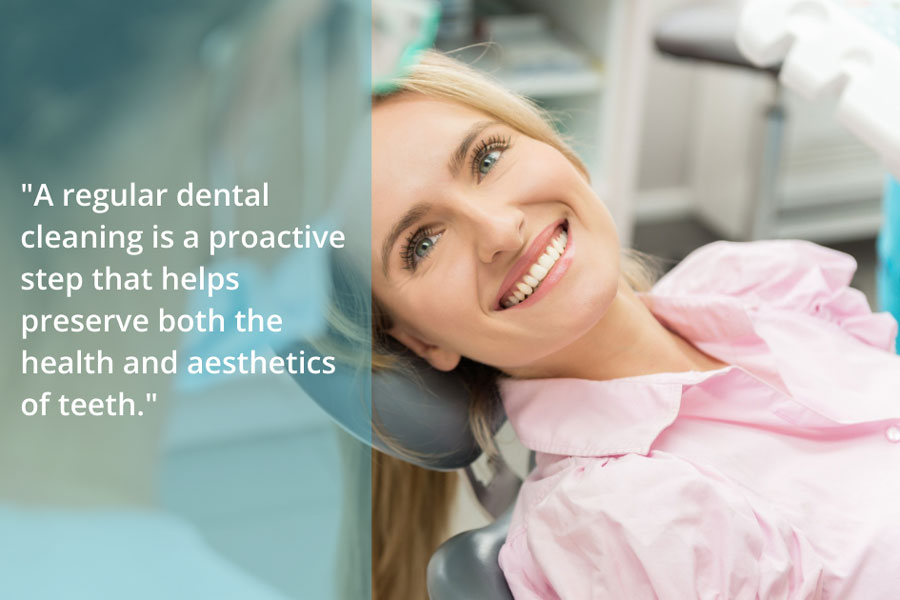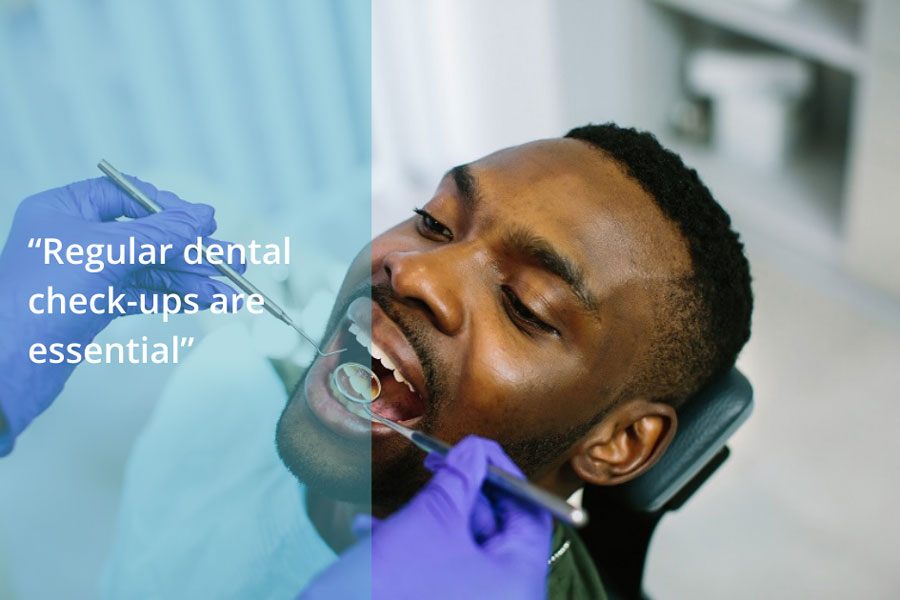Is brushing and flossing at home enough to keep our smiles bright and our gums healthy, or are professional teeth cleanings an indispensable part of dental hygiene? We’ve often heard that prevention is better than cure, but when it comes to routine dental cleanings, opinions vary. These sessions not only aim to polish our pearly whites but also prevent potential dental disasters that could lead to pain and costly treatments. As we explore the balance between necessary medical intervention and natural home care, one might wonder where the line truly lies. What are the overlooked benefits of having a professional look into our mouths regularly?
Understanding Dental Cleanings
To maintain excellent oral health, dental cleanings involve the thorough elimination of plaque and tartar from the surfaces of teeth. These elements, if left unattended, can result in a variety of dental issues, such as tooth decay and gum disease. A regular dental cleaning is a proactive step that helps preserve both the health and aesthetics of teeth.
During a professional cleaning, specialized tools are used to gently yet effectively cleanse the teeth. This process not only targets the visible surfaces but also reaches beneath the gum line where plaque and tartar are particularly prone to accumulate. Such detailed cleaning is challenging to achieve with regular brushing and flossing alone.
In addition to cleaning, these sessions provide an opportunity for dental professionals to conduct a thorough examination of the gums, teeth, and mouth. This is essential for early detection of potential problems which, if left untreated, could develop into more serious conditions.
We understand the importance of tailor-made recommendations for oral care. Hence, based on individual assessments and histories, we may suggest varying frequencies for these cleanings. This personalized approach ensures that each individual’s specific oral health needs are met, further highlighting the crucial role of regular dental cleanings in maintaining overall oral wellness.
Benefits of Regular Cleanings
Regular teeth cleanings play a significant role in preventing cavities, gum disease, and eventual tooth loss. By engaging in routine dental cleanings, we’re not just polishing our teeth, but actively removing plaque and tartar buildup that daily brushing and flossing might miss. This is essential because if left untreated, this buildup can lead to serious dental problems.
Professional dental cleanings do more than just maintain healthy teeth; they also help preserve overall oral hygiene. During these sessions, dental professionals can spot early signs of conditions like gum disease, which allows for timely intervention and treatment. This proactive approach helps prevent tooth decay and other issues that could lead to more extensive and costly dental work down the line.
Moreover, routine cleanings contribute to fresher breath and a brighter smile, boosting our confidence and social interactions. They also play a significant role in our overall health, as poor oral health has been linked to various systemic diseases, including heart disease and diabetes.

Potential Risks and Complications
While teeth cleanings are generally safe, we must consider potential risks and complications that, although rare, can occur. It’s vital to be aware of these to make informed decisions about our oral health care.
The most common risks during a routine cleaning include pain and sensitivity, which typically resolve within a few days. However, more intensive procedures, such as deep dental cleaning, carry additional risks.
Deep cleanings explore beneath the gumline to remove tartar and bacteria, which can sometimes lead to gum recession. This recession exposes more of the tooth’s root, potentially increasing sensitivity and vulnerability to decay.
Another rare but serious complication is nerve damage. This can occur if the cleaning tools affect nerves within the gums, leading to temporary or, in very rare cases, permanent numbness or pain.
We must also be cautious about the risk of infection following any dental cleaning. Although our dental team adheres to stringent sterilization protocols, bacteria can sometimes enter the bloodstream or gum pockets, requiring prompt medical attention.
We’re committed to minimizing these risks by using precise techniques and maintaining a sterile environment. By understanding these potential complications, we can better prepare and address them swiftly should they arise.
The Cleaning Procedure Explained
In a dental cleaning, our skilled hygienists first examine your teeth and gums to identify any signs of gum disease or cavities. After this initial assessment, we’ll commence the cleaning process, which is essential in preventing tooth decay and maintaining good oral health.
To tackle plaque or tartar build-up, our dental hygienist uses specialized tools for scaling and root planing. This vital step helps remove plaque effectively, reaching areas that regular brushing can’t. Using both manual scalers and ultrasonic devices, we meticulously clear away the hardened tartar that contributes to gum disease.
Following the scaling process, we polish your teeth using a high-power brush and a slightly gritty toothpaste. This not only enhances the aesthetic appeal of your smile but also smoothens the tooth surface, making it harder for plaque to adhere in the future.
Lastly, we apply a protective fluoride gel that helps strengthen your teeth and guard against decay. This thorough approach ensures that each dental cleaning every six months or as needed on a regular basis supports your overall dental health, preventing future complications and preserving your smile.
Frequency of Dental Visits
Most individuals should visit the dentist every six months, though some may need more frequent appointments based on their individual oral health needs. Establishing a regular schedule for routine teeth cleanings is essential for dental patients seeking to maintain their oral health and prevent potential issues.
We often find that a cleaning every six months is ideal for many individuals to effectively manage plaque and tartar buildup, which can lead to gum disease and decay if not addressed promptly.
However, it’s important for each patient to discuss their specific circumstances with their dentist. Some may need to schedule appointments more often, especially those with a history of periodontal disease or other oral health challenges. These patients might benefit from visits every three to four months.
Conversely, those with excellent oral hygiene and no history of significant dental problems may find that a visit every nine to twelve months is satisfactory.
We encourage all dental patients to remember when they’d their last dental appointment and to schedule their next appointment as soon. Staying proactive with dental care is vital—we all need to know how often to visit our dentist to keep our smiles healthy and bright. Regular check-ups are a key component of this ongoing care.
Care Between Professional Cleanings
Maintaining good oral hygiene at home can bridge the gap between professional dental cleanings. While cleanings are necessary to remove stubborn plaque and tartar, our daily oral routine plays an important role in keeping our teeth healthy.
Brushing and flossing diligently are the cornerstones of this routine. By brushing our teeth twice a day with fluoride toothpaste, we not only clean our teeth but also protect them from decay. Flossing at home is equally crucial as it removes food particles and plaque from between our teeth where a toothbrush can’t reach.
Furthermore, incorporating mouthwash into our daily regimen can enhance our oral hygiene by targeting bacteria that cause bad breath and potential gum disease. These practices help ensure that teeth cleaning helps extend the benefits of our last professional cleaning.
Regular dental check-ups are essential, as they allow our dentist to monitor our oral health and catch any emerging issues. By adhering to these recommendations, we keep our teeth in optimal condition and minimize the need for more invasive procedures in the future. This proactive approach not only maintains our smile but also contributes to our overall health.
Signs You Need Immediate Care

We should seek immediate dental care when experiencing persistent toothache, sensitivity, or other troubling symptoms. These are clear indicators that our oral health may be at risk.
If we notice bleeding gums while brushing or flossing, this could be a sign of gum disease, which demands prompt dental attention to prevent further complications. Not just discomfort, but also loose teeth are a major concern; they often suggest advanced gum disease, and securing timely dental care can help save our teeth and maintain overall oral health.
Moreover, experiencing chronic bad breath despite regular brushing and using mouthwash might indicate the presence of plaque buildup or other dental issues that a professional dental cleaning can address.
Similarly, swelling, redness, or pus around the gums or teeth are urgent signs of infection. In such cases, immediate intervention is necessary to prevent the spread of infection and preserve oral health.
We mustn’t overlook these symptoms, as they can escalate quickly. Incorporating preventative measures such as dental sealants and regular check-ups can substantially reduce the risk of severe dental problems.
Advantages of Deep Cleaning
Intensive cleaning offers significant advantages, including the removal of plaque and tartar below the gumline, which helps prevent gum disease. This process, often referred to as dental deep cleaning, goes beyond standard cleaning by targeting the hard-to-reach areas prone to serious infections. We’re talking about a meticulous procedure that not only safeguards your gums but also plays a pivotal role in gum disease prevention.
By reaching below the gumline, deep cleaning effectively reduces gum inflammation, a common precursor to more severe periodontal issues. It’s vital in halting the progression of gum disease, which, if left unchecked, can lead to tooth loss. Furthermore, this thorough cleaning process combats bad breath, often caused by the bacteria housed in accumulated plaque and tartar.
Another core advantage of deep cleaning is the protection it offers to the roots of your teeth. By clearing away the build-up around these essential structures, deep cleaning prevents the potential for decay and supports the overall health of your teeth. Additionally, it promotes the healing of any existing infections in the gums, enhancing both dental health and comfort.
Conclusion
To emphasize, the importance of regular dental cleanings can’t be overstated. Maintaining a schedule of regular visits ensures our smiles remain healthy and vibrant, preventing serious issues that could require more invasive treatments in the future. Don’t wait for discomfort to drive you to the dentist – schedule your next cleaning with Dripping Springs Family Smiles in Dripping Springs, TX today and take a proactive step towards better dental health!